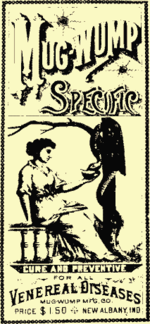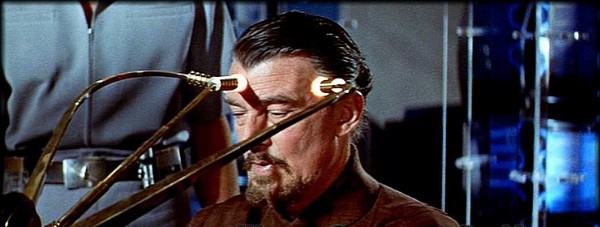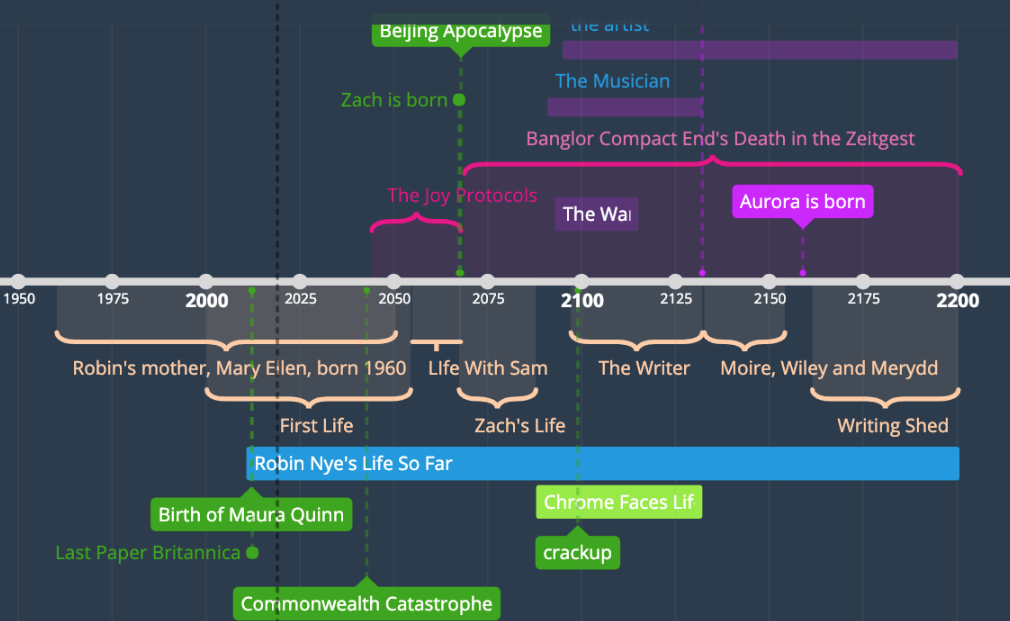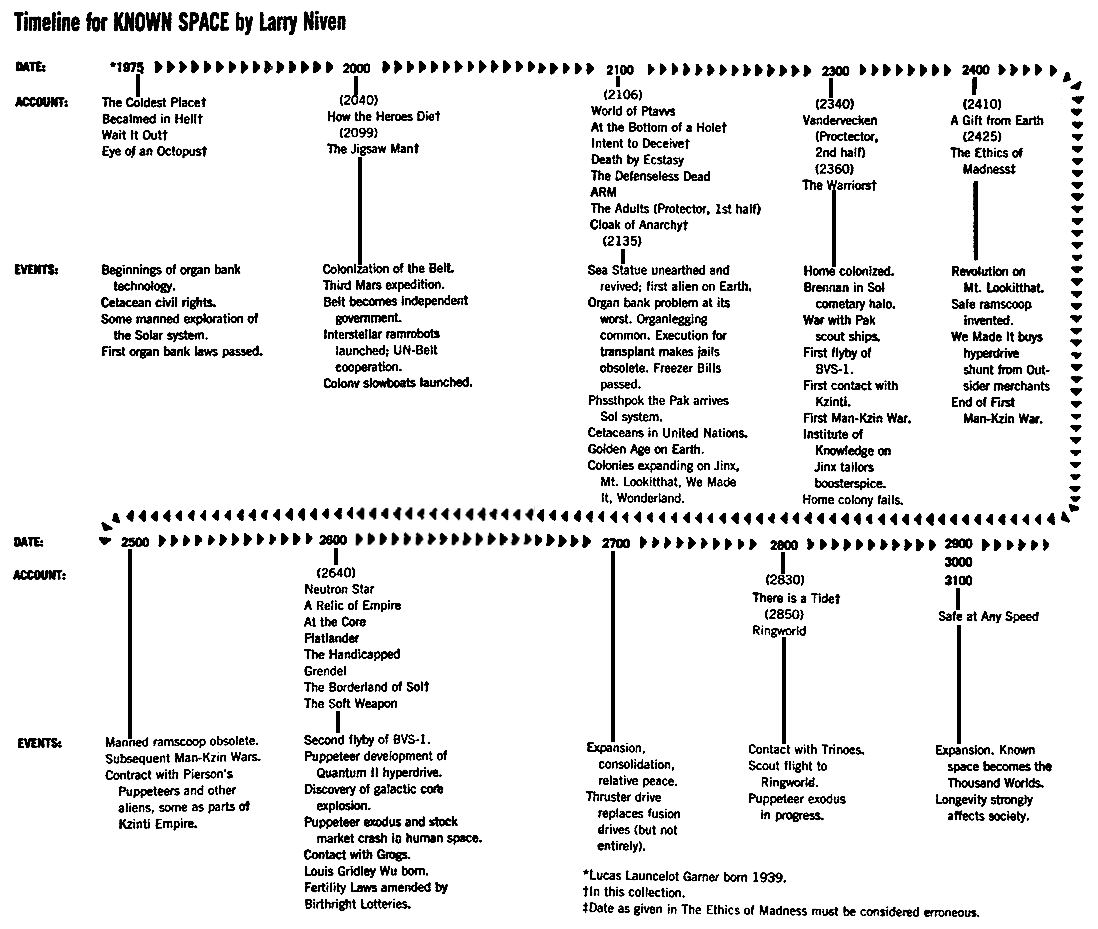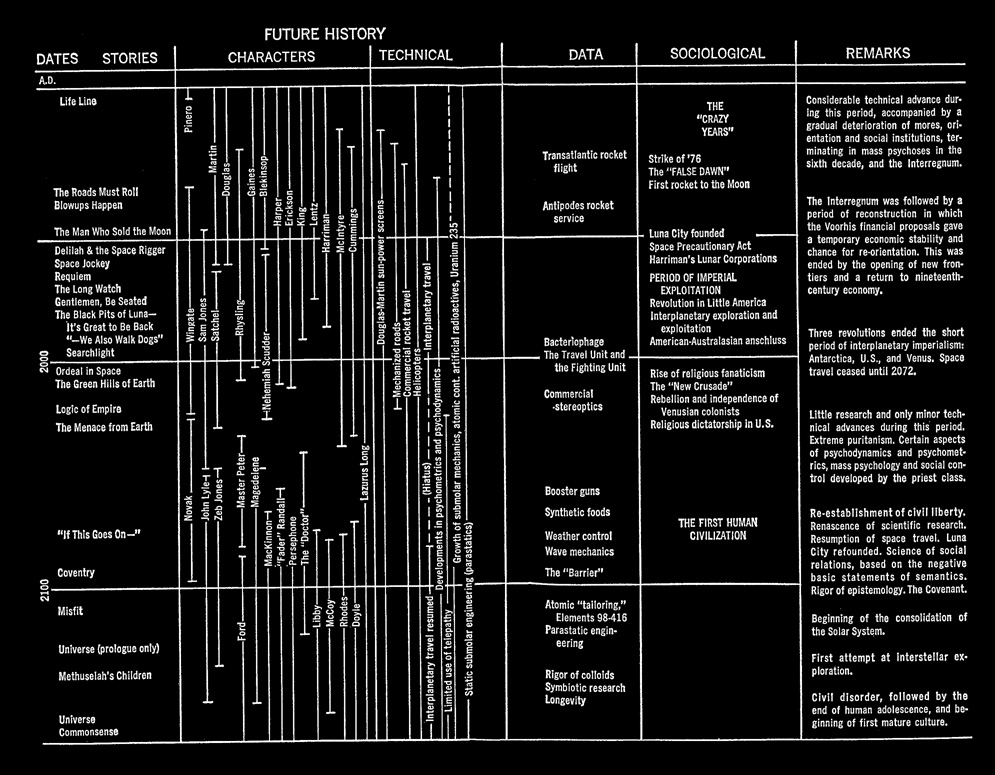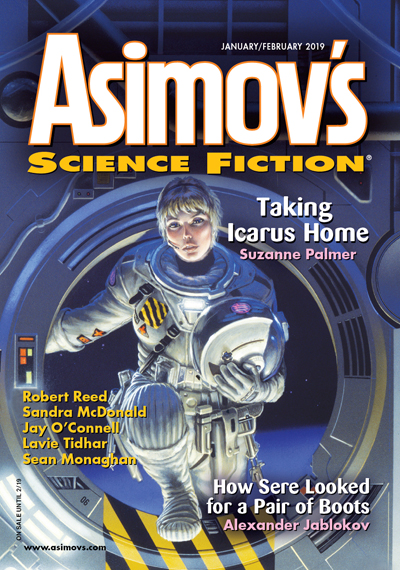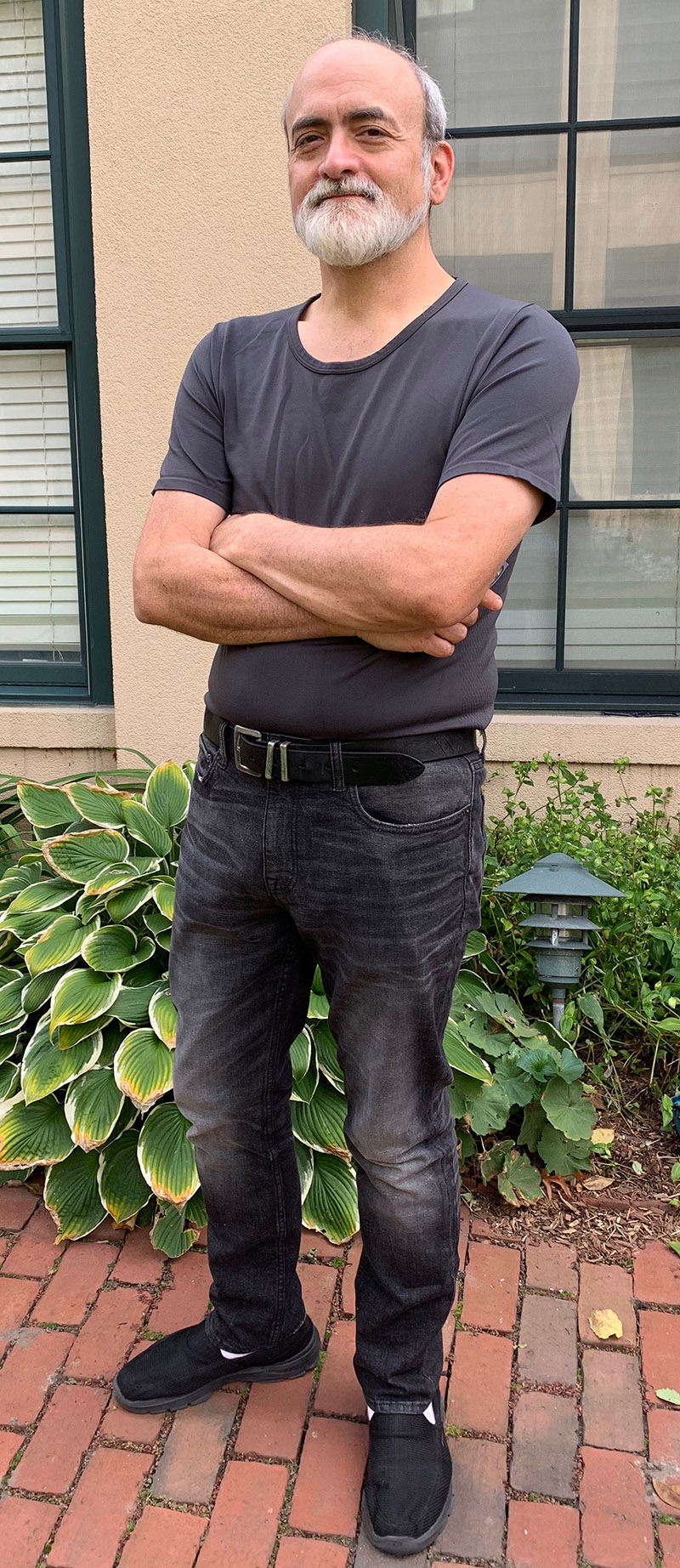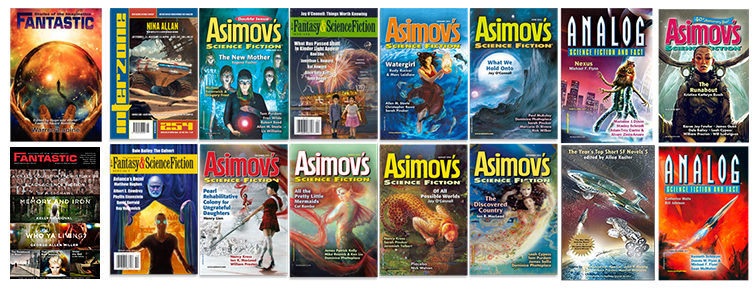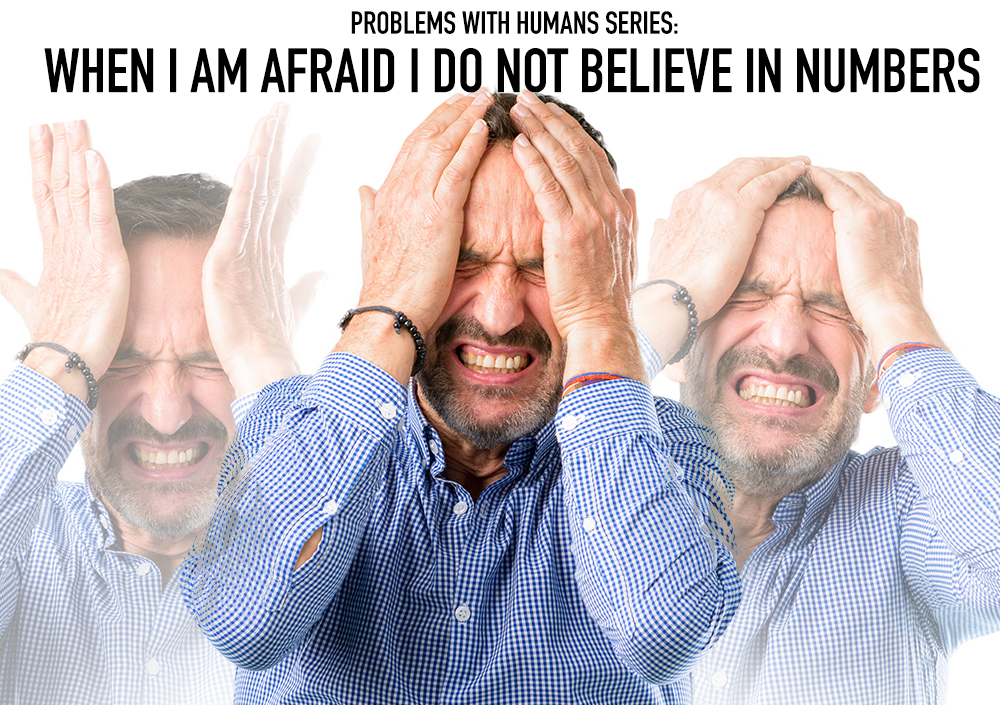Excellent piece in the New Yorker about the non-event, and to those of us addicted to our feeds, I don’t have to even identify the non-event, but I’ll just say it involves hats. Screenshot excerpt follows:
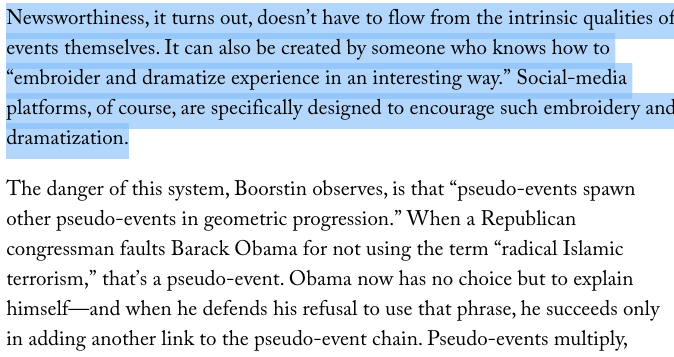
***
In the old days, there was a little meme, from before we called them memes, that wars start when politicians lie to journalists and then believe what they read in the newspapers.
This seems to more or less completely explain the botched Iraq War 2, or as I call it, the Pre-emptive Unilateral War-of-choice based on Cooked Intel that Created ISIS and Cost More than our Total Debt to China.
I used to say based on lies, but lie is a loaded word, it doesn’t really mean what it means, because it encompasses intent and a kind of self-knowledge that many liars lack.
But it doesn’t exactly explain where we are now. Where genuine grassroots outrage is indistinguishable from viral content created by provocateurs, both foreign and domestic.
But shrieking horrible loathsome men caught up, 99% of the time justly, in the gnashing gears of #metoo have a point. We have created a machine that makes mobs. A kind of destabilizing echo-chamber without gatekeepers.
Progressive have no problem seeing the Mob in gamergate. Our mob is much much better than their mob, I think.
But it’s a mob.
Now the gatekeepers gave us a corrupt status quo, whitewashing racism, sexism, colonialism, all the isms, and all the phobias, homo/trans and xeno. Or, rather the Gatekeepers were part of a status quo that had a degree of corruption in it, and that seemed oblivious to a lot of human misery.
But one has to ask oneself, standing in the ruins of the twitter-fed Arab spring, in the wake of the Trump win, what are the pros and cons of Mobs, and what the hell do we do about the genie we have released from this bottle?
I know how reactionary this all sounds. But know this. I was a techno-utopian, once. I was a cheerleader for the inter-webs.
The far left in America, for a time, believed that the news of Stalin’s purges were fake news by a corporate media in thrall to capitalist imperialism. Regardless of the thrall thing, they were wrong. The purges were real. At some point, some of the left woke up and realized, no, the purges were real, and that while the critique of capitalism made by Marxism had a lot of merit, its prescriptions for Utopia were a complete and total fucking disaster.
This is where I am now with networked technology, information that wants to be free, ‘free’ tools and technologies, digital anonymity— the whole Whole Earth Review Kevin Kelly slash Cyberpunk / Cypherpunk Randian venn overlap of techno utopianism.
Stain’s purges were real. Trump is real. A none-of-the-above social media revolution empowers the biggest organized monster lurking in the shadows.
Which brings us back to the title, and how I escaped Hatgate. (Hategate?) I stopped using the liking and sharing buttons, in the week before Covington. Instead, I wrote a few comments. I sat with choking outrage at the smirk, worrying at some level… that maybe I was being cynically manipulated, because I have been manipulated in this way before.
I wonder now, if writing a comment is like eating a piece of fruit, and if liking and sharing is like drinking sweetened fruit juice, which is fine for some people but a road to obesity and diabetic problems for others. All the white flours which some people tolerate, and which make other people sick.
If you don’t care enough about something to actually talk about it? With words? What the fuck are you really doing by sharing it, and liking it… and maybe not even reading it?
You’re memeing. You’re gossiping. You’re agitating. You’re echochambering. You’re inciting. Like and share is the core of the feedback loop of virality.
Hey what do you call a living thing that grows super super fast, hijacking all available resources, and growing without care for the environment supporting it?
That’s a tumor. That’s cancer.
Like and Share is a tumor machine.
I’m stopping it for now. Or being super judicious (he says) as in linking to the article about non-events above. (he then goes back and reads every word of the article) If I ‘heart’ something I’ll say so with words. If I want to share something, I’m gonna sever the link to the original and embed it in a post I write, that ads some new angle and credits the original authors… let them google up the damn link. Otherwise, people can find the news item… through their own interests.
Maybe even through, gasp, a gatekeeper.
I’m giving up my part time job as a viral agent, and I realize, in so doing, I forfeit my right to become viralized.
Without viralizing, any following I have will grow slowly. Word of mouth that is actually words, and not button presses. Apples instead of applejuice.
I was saved from Covington because I didn’t share it, I was never an agent for whatever created it, and I didn’t distract people from anything real by talking about it, except in this broader context, of saying we have to stop talking about pure outrage fed to us by the outrage machine.
One partial fix, which of course is gameable, is the downvote, which twitter and FB lack. Another excerpt:
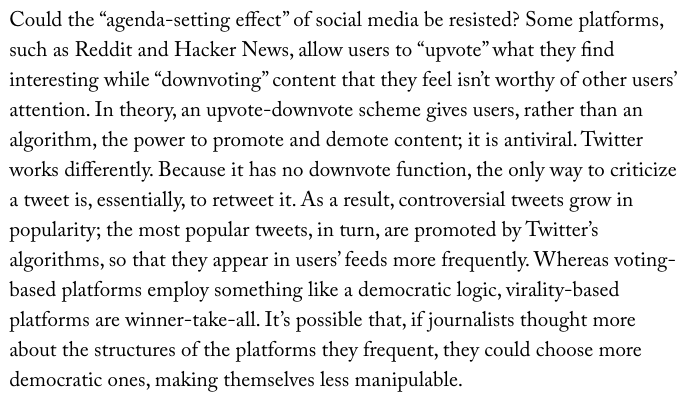
***
With the downvote, instead of doubling down on Covington, or parsing it, and talking about it, and feeding it, one could, after getting more context, downvote it.
Downvoting the non-event would be a way of voting for none-of-the-above that isn’t abdicating the slippery moral imperative to vote for the lesser of two evils.
You got scammed by the outrage machine? Fuck that. Downvote is the button we need. All publicity is good publicity? And you tricked me into giving it to you?
Let me knock that bullshit back down to size.
This cranky man resisted click-bait outrage. You won’t believe what happened next!
